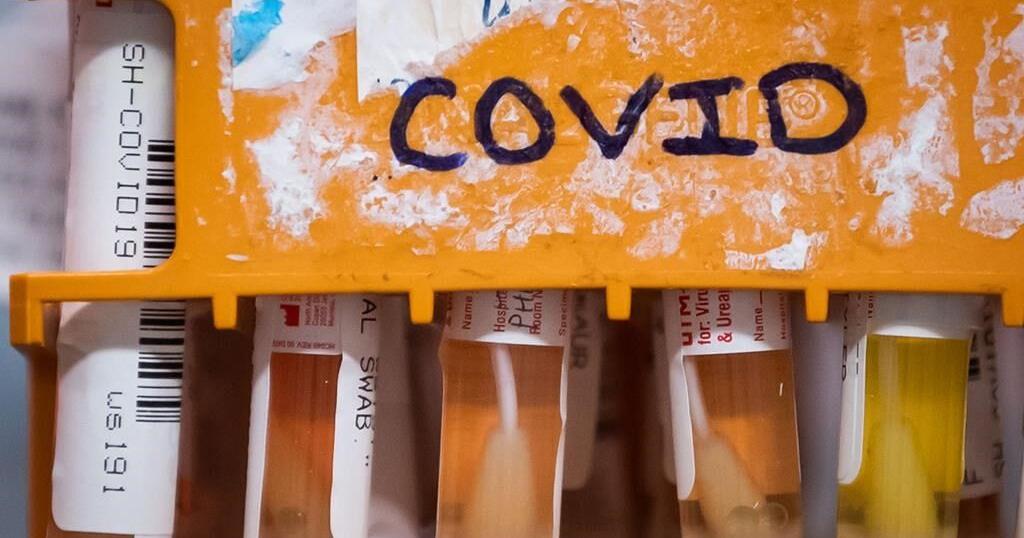As several provinces get rid of their existing COVID-19 vaccine supplies to make way for updated shots expected in the fall, pharmacists and some doctors say the move raises questions about gaps in vaccine access and government messaging.
Officials in Ontario, Alberta, Saskatchewan and Quebec say they are following a directive from the Public Health Agency of Canada to dispose of vaccine stocks that target the XBB.1.5 variant, before new formulations are approved and distributed. Alberta health officials said more than 300,000 doses have been withdrawn in the province while Ontario and Saskatchewan said it will take time to determine their counts.
In contrast, British Columbia says it will continue to offer its remaining supply of COVID vaccines.
“We are encouraging people in B.C. to wait for the new formulation if they can – but we are ensuring in the interim that vaccine remains available for people who may need it,” a spokesman for the provincial health officer said in a statement.
Meanwhile, Manitoba residents who still want a dose of the XBB.1.5 vaccine can make a request that will be considered on a case-by-case basis, a provincial spokesperson said.
The federal government previously stated on its website that after Aug. 31, “there will no longer be XBB.1.5 COVID-19 vaccines available for use in Canada.”
But on Wednesday, a spokesperson for the Public Health Agency of Canada and Health Canada told The Canadian Press that PHAC is working on a “transition plan” with the provinces and territories that gives them “flexibility to ensure ongoing access to current supply until new vaccines are approved.”
The Canadian Pharmacists Association said Thursday that “mismatched guidance” on existing COVID vaccines can lead to confusion for patients.
“While we understand that many provincial governments have communicated specific instructions to pharmacists based on the federal government’s direction to withdraw existing XBB vaccine supplies, that communication varies between provinces,” an association spokesperson said in a statement.
“When there is a gap in access this can lead to a lot of questions from patients at the pharmacy.”
Dr. Brian Conway, medical director of the Vancouver Infectious Diseases Centre, said he takes issue with the federal agencies’messaging on pulling COVID vaccines that are still effective.
“I’m trying to make sure that we don’t reduce public confidence in the vaccine,” Conway said in an interview.
“A message like this, ‘We’re taking a vaccine that we told you was good, really good, and you needed to get six or nine months ago, and now we’re saying, oh, well, now we’re destroying it, even though it’s not expired.’ It’s a message that is already being a little bit misinterpreted by the public.”
Conway said B.C.’s decision to provide doses of the XBB vaccine to people who may still want one is a “reasoned” approach.
“If you really need a shot now for a medical reason, this is still a very good vaccine that has good cross-protection against the currently circulating strains,” Conway said.
Health Canada says it’s reviewing updated COVID vaccines from Pfizer, Moderna and Novavax on “an expedited basis,” and expects to authorize them this fall if they meet safety and efficacy standards. A spokesperson for the Ontario health minister said it’s estimated that provinces will get the new vaccine supplies from Health Canada in October.
Individuals who need a vaccine dose in the short term should account for a “very small number of people,” said Dr. Zain Chagla, an associate professor at McMaster University and an infectious diseases physician in Hamilton.
“Even people at risk are better off just waiting, recognizing that they want that protection and they want optimized protection going into the season,” Chagla said.
This report by The Canadian Press was first published Sept. 5, 2024.
Canadian Press health coverage receives support through a partnership with the Canadian Medical Association. CP is solely responsible for this content.

























